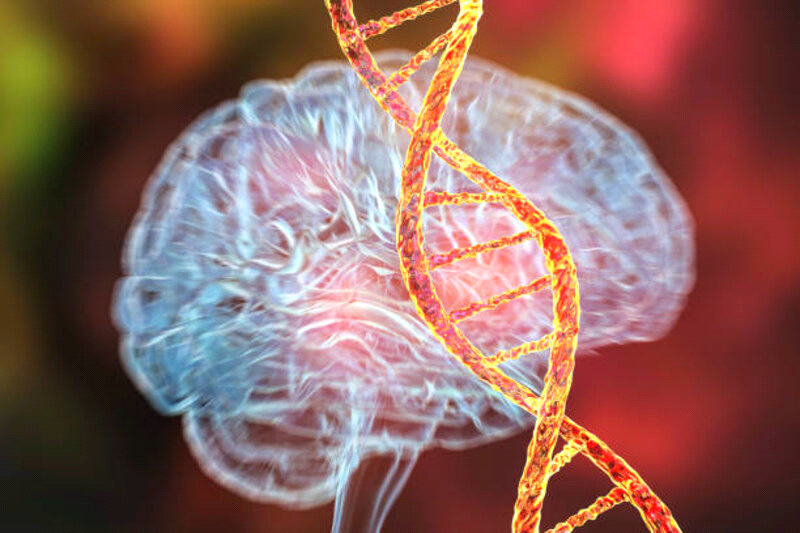Is Depression Genetic? Understanding the Role of Genetics in Mental Health
Jan 11, 2024 By Madison Evans
Depression is a serious mental health condition that can drastically impact all aspects of life. It can be incredibly difficult to cope with depression, which can leave those affected feeling powerless and overwhelmed by the symptoms they experience. But it's important to understand that these feelings of helplessness don't need to persist. Recent research has suggested that much of our mental health is connected to genetic factors, meaning we may have more control over our depression than we think. In this blog post, we'll talk about the role of genetics in depression—what science already knows so far, and what potential promises lie ahead in terms of understanding how genes play into our risk for mood-related disorders.
Overview of Mental Health Disorders:
Mental health disorders are complex conditions that affect millions of people worldwide. While environmental factors like stress and trauma can play a role in the development of mental health issues, genetics can also contribute to these disorders.
How Genetics Play a Role?
Research has shown that certain genetic variations can increase the susceptibility to conditions like;
- Depression
- Anxiety
- Bipolar disorder
- Schizophrenia
These variations can influence the way that neurotransmitters, hormones, and other brain chemicals work, leading to changes in mood and behavior. Understanding the genetic factors that contribute to mental health disorders is crucial for developing effective treatment strategies and ultimately improving outcomes for those who are affected.
Types of Depression:
Two of the most well-known types of depression are
Major Depressive Disorder:
Major Depressive Disorder involves long periods of low mood, with symptoms including;
- Sadness
- Fatigue
- General feelings of worthlessness
Bipolar Disorder:
Bipolar Disorder, on the other hand, involves shifting between episodes of depression and periods of high energy and hyperactivity known as mania. Understanding the nuances of different types of depression is essential to getting the right diagnosis and treatment for those affected by this challenging condition.
What the Research Says about Genetic Links to Mental Health Disorders?
Scientists have been studying the possible genetic links to mental health disorders for quite some time now. Through their research, they have discovered that genetics play a significant role in the development of certain mental health conditions, such as bipolar disorder and schizophrenia.
Studies have even shown that up to 80% of the risk for developing these disorders can be attributed to genetic factors. However, it's important to note that having a genetic predisposition to a mental health disorder does not necessarily mean that you will develop the condition.
Exploring Risk Factors for Depression that are Not Genetically Based:

Depression is a complex condition that affects a significant portion of the world's population. While genetics play a role in the development of depression, there are also other risk factors that should not be overlooked. Environmental factors such as;
- Childhood trauma
- Chronic stress
- Substance abuse
They can all contribute to the onset of depression. Social and cultural factors such as;
- Discrimination
- Isolation
- Lack of social support can also increase the risk of developing depression.
Potential Treatment Options for Those Struggling With Depression:
Depression can make you feel like you're stuck in a never-ending cycle of darkness and hopelessness. But there is light at the end of the tunnel. There are various potential treatment options available to help you break free from this mental health challenge. Cognitive-behavioral therapy (CBT), medication, and more recently, psychedelic-assisted therapies have shown promising results in treating depression.
CBT helps change negative thought patterns and behaviors, while medication can regulate the imbalance of chemicals in the brain. Psychedelic-assisted therapies, like psilocybin, are currently being researched for their ability to positively impact the brain and help in coping with depression.
How to Manage Your Mental Health & Wellbeing During Difficult Times?

Managing your mental health and wellbeing is crucial during these challenging times. When things get tough, it's important to remember to take a step back and focus on yourself. One thing you can do is practice self-care by engaging in activities that bring you joy and relaxation, such as reading a book or taking a bubble bath.
Staying connected with loved ones and seeking support from them can help alleviate stress and anxiety. Don't forget to prioritize getting adequate sleep, eating a healthy diet, and exercising regularly.
Conclusion:
Whether someone is struggling with mental health issues due to a genetic predisposition or outside stressors, it is important to remember that help is available and there are many ways to manage symptoms. While genetics may play a role in some cases of depression, it is critical to recognize the other potential risk factors which should be addressed as part of an overall treatment plan. As research continues into mapping out the complex links between genetics and mental health disorders, it reminds us of the importance of being aware of our own mental health and wellbeing.







